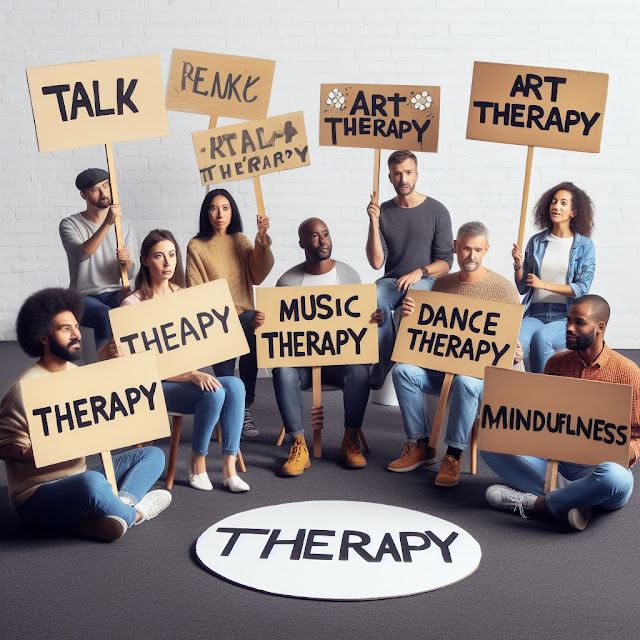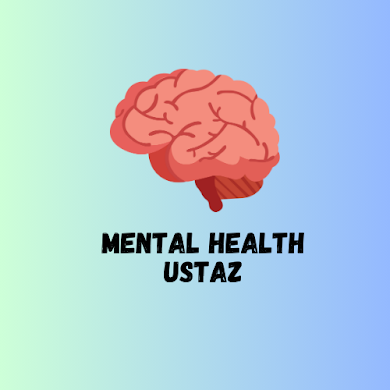Introduction: In today's fast-paced and often stressful world, the importance of therapy for maintaining mental and emotional well-being is increasingly recognized. Therapy comes in many forms, each with its unique approach and techniques. In this comprehensive guide, we'll delve into the various types of therapy, answering the question, "What are the different types of therapy?" This exploration will help you better understand your options for personal growth and mental health. Let's explore this fascinating world of therapy in greater detail.
Different Types of Therapy
1. **Psychotherapy**
Psychotherapy, also known as talk therapy, is one of the most common forms of therapy. It involves a trained therapist and a client engaging in open conversation to explore thoughts, feelings, and behaviors. Psychotherapy can be tailored to various issues, such as anxiety, depression, and relationship problems. This form of therapy is often the foundation of other therapeutic approaches.
2. **Cognitive Behavioral Therapy (CBT)**
Cognitive Behavioral Therapy, commonly referred to as CBT, is a highly effective and widely used form of psychotherapy. It focuses on identifying and changing negative thought patterns and behaviors. CBT is particularly helpful for treating conditions like anxiety disorders, depression, and phobias. To learn more about CBT, you can visit the [American Psychological Association's guide](https://www.apa.org/topics/psychotherapy/approaches).
3. **Dialectical Behavior Therapy (DBT)**
Dialectical Behavior Therapy, or DBT, combines standard cognitive-behavioral techniques with the concept of mindfulness. It is especially useful for individuals with borderline personality disorder and those who struggle with emotional regulation. DBT emphasizes the development of skills for emotional management and interpersonal effectiveness.
4. **Psychodynamic Therapy**
Psychodynamic therapy explores unconscious processes to understand and resolve emotional and relational issues. It is often used to delve into deep-seated emotional conflicts and the impact of early life experiences. This approach aims to bring unconscious thoughts and feelings to the surface, facilitating personal growth and self-awareness.
5. **Humanistic Therapy**
Humanistic therapy emphasizes the importance of personal growth and self-actualization. It aims to help clients develop a stronger sense of self and focus on their personal values and beliefs. The person-centered approach in humanistic therapy places a strong emphasis on the therapeutic relationship, where the therapist provides empathy, genuineness, and unconditional positive regard.
6. **Interpersonal Therapy (IPT)**
Interpersonal Therapy (IPT) focuses on improving interpersonal relationships and communication skills. It is often used to treat depression and can be beneficial for individuals who struggle with social interactions. This approach targets specific interpersonal issues that may contribute to emotional distress.
7. **Art Therapy**
Art therapy utilizes creative processes such as painting, drawing, and sculpting to help individuals express their emotions and explore their inner world. It is particularly effective for people who find it challenging to express themselves verbally. Through the creation of art, clients can gain insight into their emotions and experiences.
8. **Music Therapy**
Music therapy harnesses the power of music to promote emotional expression and relaxation. It can be beneficial for individuals with mental health issues, as well as those with developmental or learning disabilities. Music can evoke strong emotions and memories, making it a valuable tool in therapy.
9. **Animal-Assisted Therapy**
This unique form of therapy involves interactions with animals, such as dogs or horses. It can provide emotional support, reduce anxiety, and promote a sense of well-being. The presence of animals can create a calming and nonjudgmental environment, making it easier for individuals to open up during therapy sessions.
10. **Group Therapy**
Group therapy involves a therapist leading a session with a small group of individuals. It can be a powerful way to share experiences and gain support from peers dealing with similar issues. Group therapy is particularly effective for conditions like substance abuse, where peer support plays a crucial role in recovery.
Conclusion
The world of therapy is diverse, offering a wide range of options to suit individual needs and preferences. Whether you're seeking help for a specific mental health condition or simply want to enhance your personal growth, there's a therapy type that can assist you on your journey.
For more information on various therapy approaches, you can refer to the [American Psychological Association's guide](https://www.apa.org/topics/psychotherapy/approaches). Don't hesitate to reach out to a mental health professional to explore these therapy types further and discover the one that can make a positive impact on your life.
Remember, the key to successful therapy is finding the right fit for you. Every individual is unique, and the therapy approach that resonates with one person may not be the best choice for another. Your journey to mental and emotional well-being begins with the decision to seek help and the right type of therapy for you. Take the first step toward a healthier, happier you by exploring the diverse world of therapy.
Certainly! Here are five frequently asked questions (FAQs) related to the topic of different types of therapy:
1. What is the most effective type of therapy for anxiety disorders?
- Answer: Cognitive Behavioral Therapy (CBT) is often considered one of the most effective therapies for anxiety disorders. It focuses on identifying and challenging negative thought patterns and behaviors, providing practical strategies for managing anxiety.
2. Is it possible to combine multiple therapy approaches for better results?
- Answer: Yes, in some cases, therapists may use an integrative or eclectic approach, combining elements of different therapies to tailor treatment to an individual's specific needs. This approach is known as integrative therapy and can be highly effective.
3. How do I choose the right type of therapy for my specific issue or goals?
- Answer: It's essential to consult with a qualified therapist who can conduct an assessment and discuss your concerns. They will help you determine which type of therapy is best suited to your needs and goals.
4. Are therapy sessions always one-on-one, or can I participate in group therapy?
- Answer: Therapy sessions can be both one-on-one and group-based. Individual therapy is more personalized, while group therapy provides the opportunity to connect with others facing similar challenges, offering a sense of community and support.
5. Can I try multiple types of therapy to see which one works best for me?
- Answer: Yes, it's possible to explore different types of therapy to find the one that resonates with you. However, it's essential to communicate openly with your therapist about your preferences and expectations to ensure you receive the most beneficial treatment.
Remember that these are general answers to common questions. For specific guidance and recommendations, it's best to consult with a licensed therapist or mental health professional who can provide tailored advice based on your unique situation.




0 Comments